|
"Get Out There and Spend" says Chancellor ...
Retail sales "bounced back" after a dismal start to the year, according to the headlines in The Times today. Sales increased by 2% in February compared to prior month. Not much of a bounce back really. Sales were down by almost 4% compared to prior year. Exclude petrol and other fuels and overall sales, were down by just 1%. The pattern of pandemic sales repeats. DIY and garden center sales were up by over 20%. Clothing and footwear sales were down by 50%. Alcohol sales were up by over 40% in the month. Food sales were up. The proportion of food sales online, increased to 12%, from just 5% last year. Online sales, as a proportion of all retail sales, increased to a record 36%. The damage to conventional retail continues. Just 15% of rents due, were paid on the March quarter day, this month, placing additional pressure on property owners, bankers and other lenders. In other news, the unemployment rate fell to 5%. Earnings increased to 4.8%. The Chancellor is urging people to "get out there and spend". "Go have fun and spend money". Shops are due to re-open on the 12th April. Rishi Sunak said, people should "do their bit" by spending savings they had built up during the lock down. The Chancellor believes there is a lot of excess savings, which could be a stimulus to growth. The Office For Budget Responsibility said last month, that households have accumulated £180 billion in accumulated savings. Spend it all, and with VAT back at 20% that's a further £30 billion for the Treasury coffers. In an effort to to help the recovery and increase costs for retail, shops would be allowed to open until 10:00 pm in the evening, said Robert Jenrick, the Communities Secretary. Time then, to pop into the pub, with no curfew in place. Just carry a vaccine passport and be prepared for a blood test. Scientists in SAGE are working on a breathalyser. Yes! Soon it will be necessary to "blow into the bag" before you can get a drink ...
0 Comments
Joe Biden held his first press conference this week. China featured. "I will save the world from an over mighty China" vowed the President of the United States.
Working with other democracies, Biden committed to ensure China does not achieve global domination during his presidency. He may even run for a second term, to hold things up, if necessary. China is set to overtake the US, as the largest economy in the world by 2028 and double in size by 2035. It may take over 50 years to achieve parity in terms of GDP per capita. Even Joe Biden can't expect to hold onto office, until then. "China has an overall goal to become the leading country in the world, the wealthiest country in the world and the most powerful country in the world. That's not going to happen on my watch, because the US is going to continue to grow and expand" said Biden. The President ducked questions on whether he would ease trade restrictions and lift tariffs as many businesses in the US request. The United States is urging allies around the world to counter maritime aggression in the South China Seas. Anthony Blinken, Secretary of State pushed for action in meetings with the "Quad". The "Quad" is the security alliance including Australia, Japan and South Korea. In the Philippines, concerns are rising about the large Chinese fishing fleet, floating around the Spratly Islands. Trawler men, trained to fish and fight, are on board. Manila is to step up "sovereignty patrols". China announced further exercises in the South China Seas in response. Chinese warplanes carried out the biggest incursion yet into Taiwan air space. North Korea launched a few short range ballistic missiles tests to assist with raising tensions in the area. Sanctions flow thick and fast from the US and the EU to China. The Middle Kingdom is always swift to respond. The UK follows the Western line. The President spoke with the Prime Minister. Ways to rival China's international Belt and Road initiative discussed. The response from Number 10 must have been pretty lukewarm. No money for international infrastructure on offer. "We are in the process of slashing foreign aid, wrestling with our leveling up agenda and struggling to get a high speed rail link to Birmingham at the moment. In any case I have my mind set on a bridge to Northern Ireland. We are using the old blue print for a flower bridge, across the Thames to save money." The President is walking the line to suit a domestic political agenda. No cold war in prospect. The first meetings in Alaska were frigid enough. The tensions are rising. Time soon to dial down the rhetoric. Beijing is making it clear, two circulations are available for growth. Applying a tourniquet to the Western limb would not be a severe impairment to China's growth ambitions ... "I am more optimistic" says Governor ...
No rise in base rates this week. The MPC voted unanimously to maintain Bank Rate at 0.1%. The target for government bond purchases was maintained at £875 billion. The corporate bond stock was on hold at £20 billion. The total target stock of asset purchases remains at £895 billion. Just as well really. Total government debt increased to almost 98% of GDP. The quantum of solace hit £2.13 trillion. Not long before the Chancellor will have exhausted, his first trillion pound bank note. The Governor is feeling more optimistic about the prospects for the year. The vaccination programme continues at pace. The slow down in the economy, in the first quarter, is better than expected. Restaurant bookings are increasing. Domestic holiday reservations are rising, (with prices to match). Consumer confidence is on the rise. Business confidence in manufacturing and construction is particularly high. Asked what sort of recovery the UK could expect, Andrew Bailey said "I am now more positive but with a large dose of caution". "We now see upside risks to our January forecast", with some chance the peak in unemployment, may be lower than expected. In January, the Bank were forecasting growth of 5% for the current year. An upward revision seems probable. 6% to 6.5% growth, seems possible this year. In the US and China, the revisions have already been made. The IMF forecasts of 5.5% world growth this year, already out of date. UK gilt yields closed higher. Up by just two basis points in the week, at 0.84, the Governor commented "We have seen some increase in rates over the last month or so. My assessment so far, is this is consistent with the change in economic outlook". Sterling closed lower at $1.3868. The test of the $1.40 level completed our eighteen month pattern. Uncle Sam's zloty is gaining favor. The siren's call of ten year bond yields, up nine points in the week, too much to resist. In the US, the Fed held rates and maintained the asset purchase plan. The Fed is not yet ready to take away the punch bowl. Jerome Powell is topping up the punch bowl and handing out the spliffs ... check out today's update ... In the US this week, the Federal Reserve held rates and vowed to maintain the momentum of the asset purchase plan. The Fed will continue to increase its holdings of Treasury Securities by $80 billion dollars per month. $40 billion remains the monthly budget for mortgage backed securities.
The "accommodating" stance of monetary policy will be maintained until "substantial further progress has been made towards the committee's maximum employment and price stability goals." Last week the house approved Biden's $1.9 trillion spending plan. The White House is working on a further $2 trillion plan to follow, for infrastructure and business investment. The Fed is adding to a further $1.5 trillion to the asset purchase plan to help out. Forecasts for the US economy have been revised up. Growth of 6.5% is now expected for the year, compared to the 4.2% forecast in the December projections. The forecasts for unemployment have been revised down, the forecasts for inflation have been revised up. Inflation is expected to rise above the 2% target to 2.4% in the short term. The Fed will "look through" any short term breach. Base rates are expected to be on hold into 2023. US ten year bond yields increased to 1.71%. Over fifty years ago, the Chairman of the Federal Reserve, William McChesney said, the job of the central bank is to "take away the punch bowl just when the party gets going". For the moment, the Fed is topping up the punch bowl and handing out the spliffs. Jerome Powell as Chairman of the Fed is creating the mother of all parties to ensure everyone is well inebriated before the mother of all hangovers will have to be addressed ... but not for some time yet ... At the news conference on Wednesday, the Chairman was asked if it was time to start "talking about, talking about" slowing the central bank's buying of $80 billion in bonds each month. Powell let out a laugh before answering "Not Yet" ... Hopes rise for the rest of the year ...
Economic output fell by 2.9% in January, as lock down returned to the UK. The month on month comparison was better then expected by many. Better than expected according to forecasts from the Bank of England. The Bank had been braced for a 4% setback, in the quarter as a whole. Construction output increased by almost 1%. Manufacturing output fell by 2.9%. Sectors most badly hit were accommodation and food down by 30% and education down by 16%. Commenting on the data, the Chancellor Rishi Sunak said "the figures highlight the impact the pandemic continues to have but we have reasons to be hopeful. We have set out a roadmap out of the pandemic, the NHS have vaccinated over 23 million people, and my budget set out our three point plan, to protect the livelihoods of the British people." The chancellor will hope the January trade figures are just a blip and not the emergent trend. Britain's exports to the EU fell by 40% at the start of the year. The end of the transition period caused huge disruption to trade. Companies grappled with new paperwork and problems of logistics. The UK became an exporter of fresh air, as many import containers were empty, in their return to Europe. The ONS suggested there were many factors in the disruption to trade, not just the problems at the border. There had been some stockpiling towards the end of last year, compounded by the effect of lock down at the start of this year. The British Chamber of Commerce were more sanguine. Suren Thiru, head of economics said, "the slump in exports of goods to the EU, provides an ominous indication of the damage being done to trade, as a result of the border disruption." This week, the EU threatened to impose tariffs as a result of the row over the Northern Ireland protocol. The EU is looking at legal options and legal action. Negotiations are failing. The EU considers Britain to be a partner which cannot be trusted, it is said. In better new, this week, the OECD released their updated forecasts for the UK economy. Growth of 5.1% is expected this year, followed by 4.7% next. The Bank of England expects growth of 5% this year. The forecasts could well be revised up, as the full picture for the first quarter emerges. Trade tariffs and problems of logistics, should not be a threat to recovery ... On Wednesday, the "House" passed the "American Rescue Plan". The $1.9 trillion stimulus to the US economy is valued at almost 10% of GDP.
The legislation will send $1,400 dollar checks to most Americans, with additional household spending on unemployment insurance and child support. In the plan, individuals earning up to $75,000 dollars and couples earning up to $150,000 dollars, will each receive the $1,400 dollar bonus. The scheme will cost $400 billion dollars. More money, $500 billion, is allocated to FEMA, in addition to the $350 billion offered to state and local government. Forecasts of growth in the US are expected to rise as a result of the stimulus. Fears for inflation are also rising as Uncle Sam performs the helicopter drop. The thought of more cash into communities, pushed ten year bond yields higher to 1.62%. Nasdaq and S&P closed higher in the week. The DOW joined the fun, moving to an all time high, clearing the 32,500 level. China reported an increase in foreign purchases of sovereign debt in February. Overseas funds picked up a further $15 billion of assets following record purchases in the prior month. US treasuries are losing their "safe haven role. The extent of central government borrowing and central bank buying is compounding the problem. The yield of 3.2% on offer in China, assists the process. Foreign Direct Investment, into China, increased by 34% in January and February. Investment in service sector projects accounted for 80% of capital flows. Investment from the EU showed the largest overall gain, followed by the ASEAN nations and members of the Belt and road initiative. This week Bitcoin moved to $60,000 dollars. Just over ten years ago, 10,000 bitcoin were needed to pick up two Papa John pizzas. In today's market, that would value a pizza at $300 million dollars or $50,000 dollars per slice. In other news this week, the financial world discovered non-fungible tokens. A record $60 million dollars was the closing bid at auction. The winning bidder owns a work of art in the form of a unique string of code, called a non fungible token. The piece has no physical presence and will be "delivered directly to the buyer, accompanied by a unique NFT encrypted with the artist’s unforgeable signature and uniquely identified on the blockchain," Christie's said. Next week the news a SPAC or SPIV is pivoting to invest in Non Fungible Tokens, picking up Jack Dorsey's first tweet as the primary asset. I have been on Twitter since August 2007. It must be time to get the back catalogue valued ... for the bespoke TSE Special Investment Vehicle ... valued in bitcoin of course ... According to the Treasury, it was a budget which "meets the moment". Was it to be, a budget for recovery or a budget to balance the books? On analysis, it was a bit of both. Support for the economy in the short term, with a move to balance the books in the medium term.
The Rishi Sunak "Straddle" was a crowd pleaser. The Tory lead over Labour jumped to 13 points. The Chancellor's own ratings remain extremely high. 55% think he is doing a great job. Not surprising really. The budget was a £50 billion giveaway. Extension of the furlough scheme to September, more support for business, extending the Universal Credit Bonus, an uplift in the living wage, more support for the housing market, VAT reductions to continue, a £700 million bonus for Arts, Entertainment, Culture and Sport. It was a huge shopping list of goodies, to guarantee the recovery. The Chancellor offered a three point plan to protect jobs and support businesses, strengthen public finances and to generate an investment led recovery. The Office For Budget Responsibility bought into the plan. The economy is expected to recover, to pre covid levels, by the middle of next year. Growth is expected to be 4% this year rising to over 7% next. Unemployment will peak at 6.5% in the final quarter, before falling to current levels by 2023. Government debt will increase to an eye watering £2.8 trillion pounds by 2025. Borrowing will be £345 billion this year, falling to £234 billion next. Thereafter, the level of borrowing will drop below £100 billion in each year of the forecast period, thanks to an increase in income tax and corporation tax revenues. The Prime Minister's "Route to Recovery" is well marked. The numbers furloughed should begin to fall quite rapidly. In the US, 379,000 jobs were added in February. 355,000 were in accommodation, food and leisure. The impact of the route to recovery on our output model suggests growth of 6.5% may be possible this year. The Chancellor wanted to be honest with the public about the need to get public finances back on track and give people, the certainty they need, for the future. "Honesty" is the best policy. "Honesty" had scored well in focus group polling. The Institute For Fiscal Studies is more skeptical. "Santa Sunak, purveyor of billions today, will look more like Scrooge Sunak in the years ahead" said Paul Johnson, Director of the IFS. In 1990 just over 5% of taxpayers paid the higher rate of tax. Within four years, the proportion will rise to over 15%. The overall tax burden will rise to 35% of GDP. The highest level since the 1960's. For the moment, the emphasis is on the substantial support for jobs and businesses in the short term. The shock to the economy of a 10% loss of output could have led to a surge in unemployment to over 10% without the introduction and continuance of the furlough scheme. Rishi Sunak delivered a budget for the moment. He has yet to face some difficult moments with his own back benchers in the weeks and months ahead. Not least the parsimonious pay offer to NHS workers ... Last week, China revealed the ambition to double the size of the economy by 2035. This week, plans were revealed to become the advanced manufacturing super power by 2025.
The renewed focus on advanced manufacturing, is planned to offset rising labour costs and reliance on foreign technology. The plan, which was introduced at the annual meeting of the National People's Congress, is focused on rare earth metals, special materials, robotics, aircraft engines, new energy vehicles, smart cars, high-end medical equipment, innovative medicine, agricultural machinery and equipment for shipbuilding, aviation and high speed rail. Manufacturing, accounted for 33 per cent of China’s gross domestic product in the first half of 2020. It is considered to be the backbone of the country’s industrial economy. China is already, the world's largest manufacturer in terms of output. China is looking to boost research into what it calls “frontier technology” including quantum computing and semiconductors. The frontier technologies include, artificial intelligence, machine learning, quantum computing, semiconductors, brain science, genomics and biotech. Space exploration has become a top priority for China. Beijing said it will focus on research into the “origin and evolution of the universe,”. The exploration of Mars, as well as deep sea and polar research, will feature. In the UK this week, UK exporters struggled to get product to Northern Ireland. Business Secretary Kwasi Kwarteng shut down the Industrial Strategy Council. Kwarteng, who took office in January, as the secretary of state for business, energy and industrial strategy (BEIS), notified the 16 members of the council their services were no longer required. He said the government had “decided to mark a departure from the industrial strategy brand” ... it may now go to Treasury, as a reward for partial location to the North East perhaps ... |
The Saturday EconomistAuthorJohn Ashcroft publishes the Saturday Economist. Join the mailing list for updates on the UK and World Economy. Archives
July 2024
Categories
All
|
| The Saturday Economist |
The material is based upon information which we consider to be reliable but we do not represent that it is accurate or complete and it should not be relied upon as such. We accept no liability for errors, or omissions of opinion or fact. In particular, no reliance should be placed on the comments on trends in financial markets. The presentation should not be construed as the giving of investment advice.
|
The Saturday Economist, weekly updates on the UK economy.
Sign Up Now! Stay Up To Date! | Privacy Policy | Terms and Conditions | |
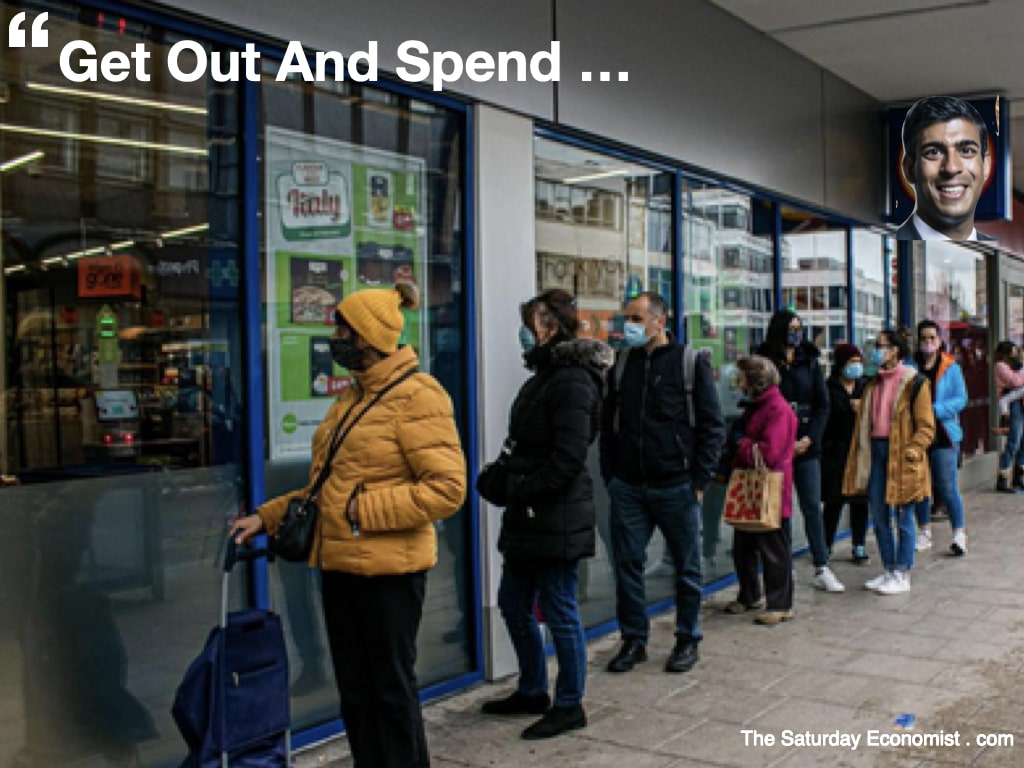
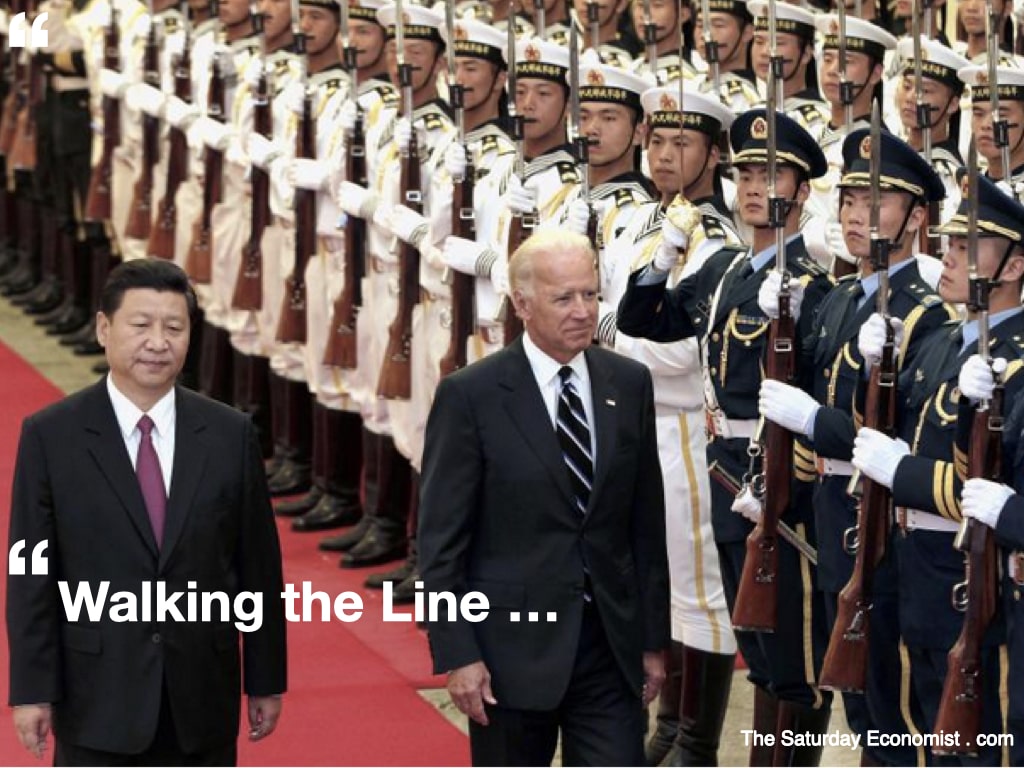
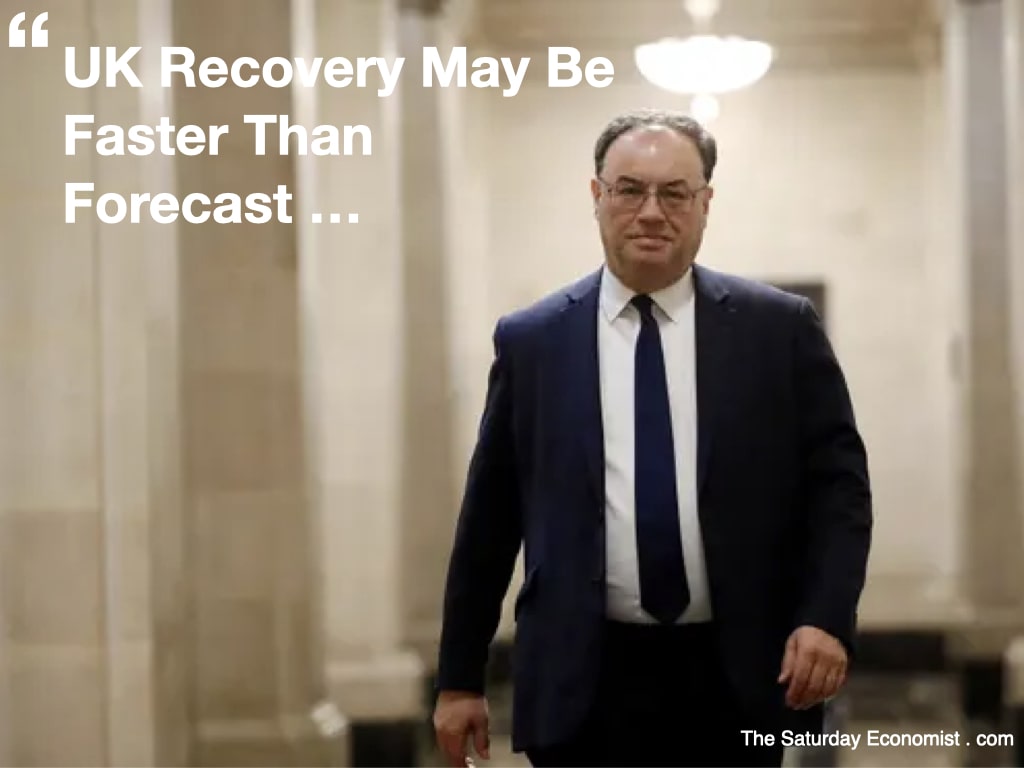
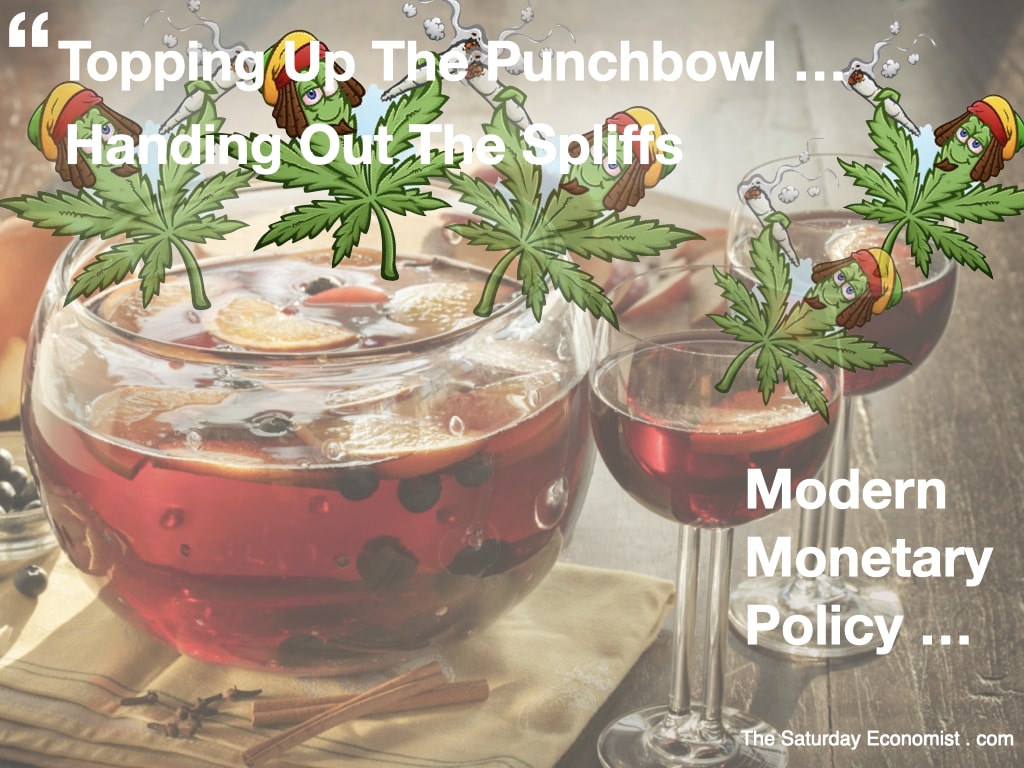

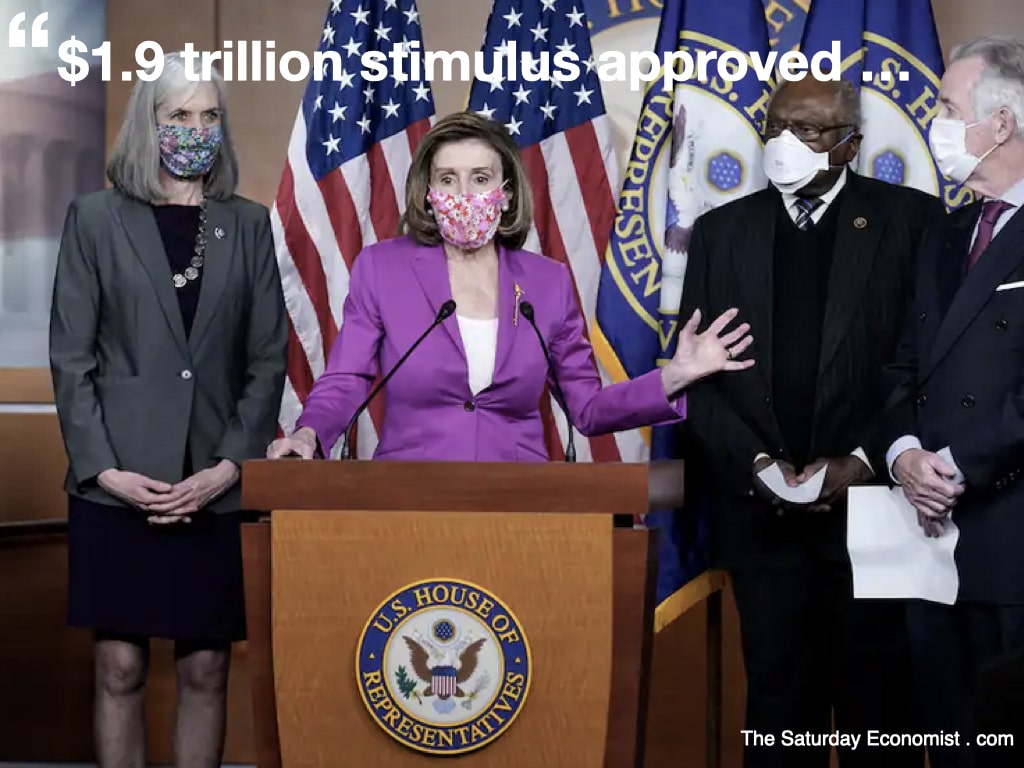
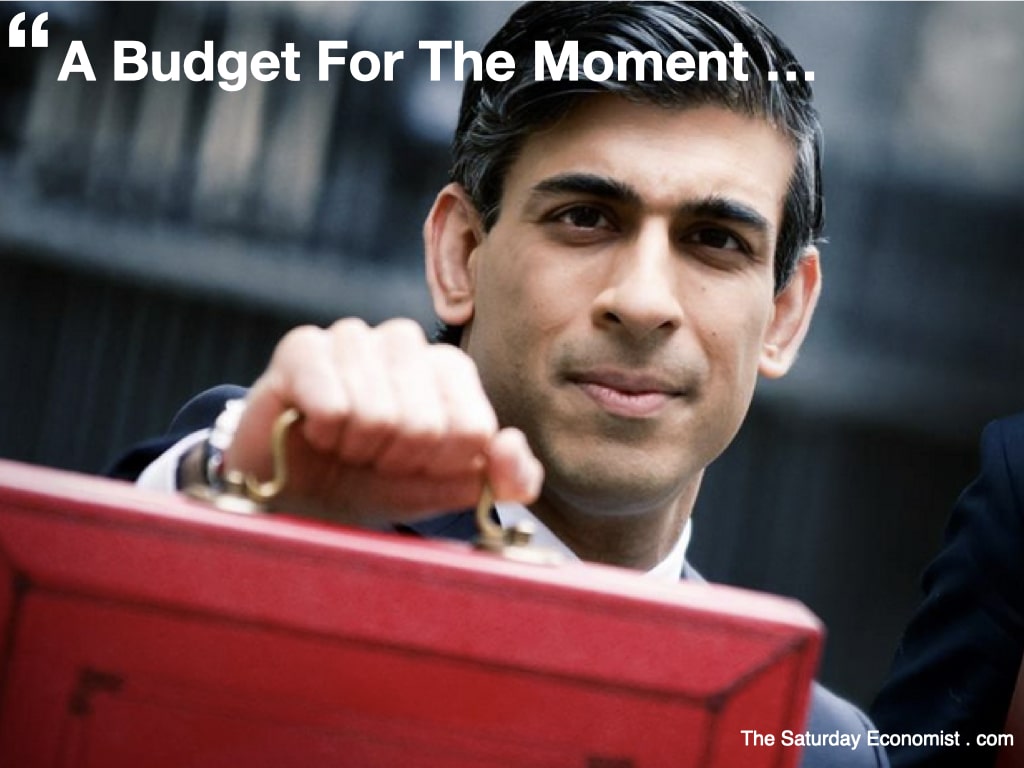
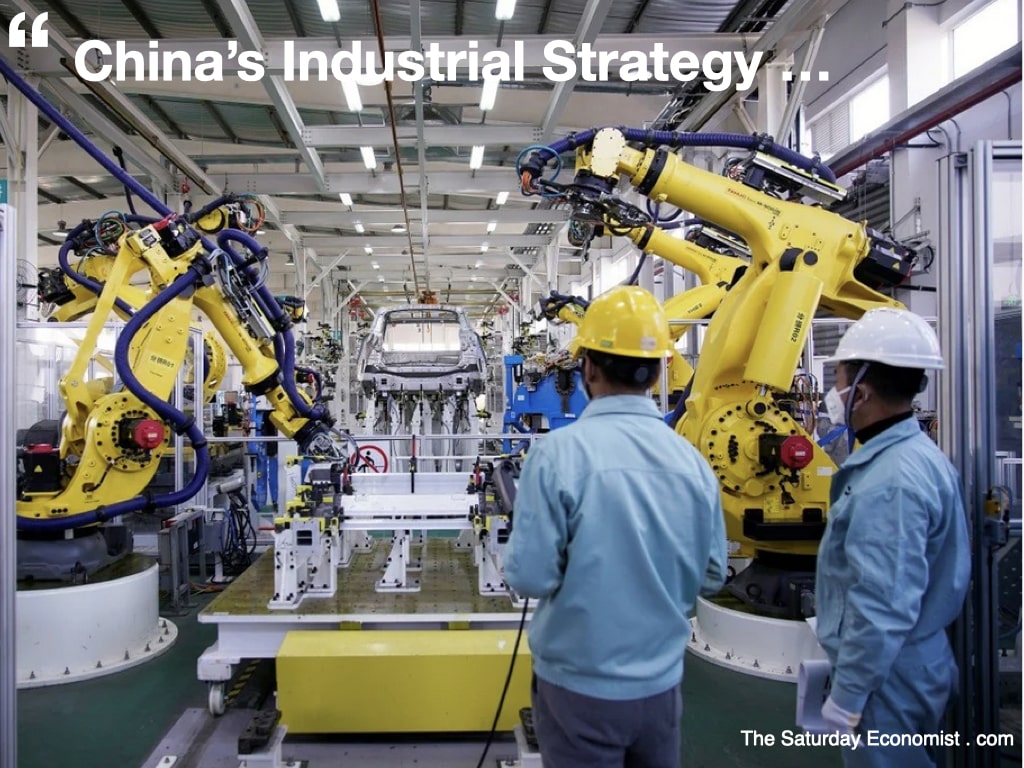
 RSS Feed
RSS Feed